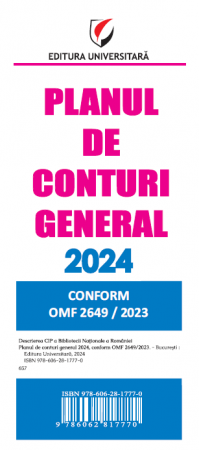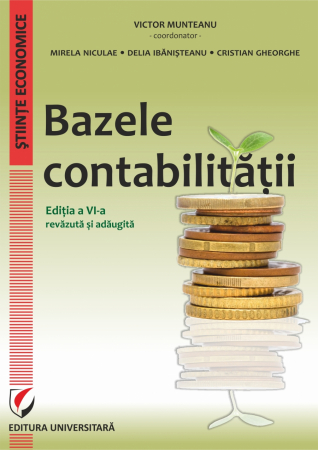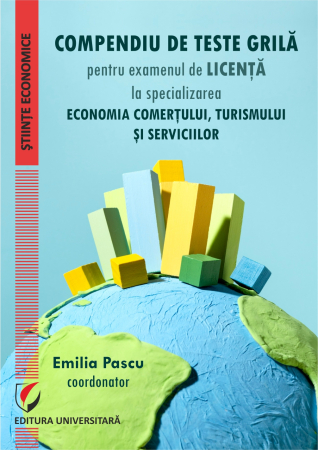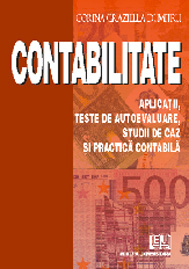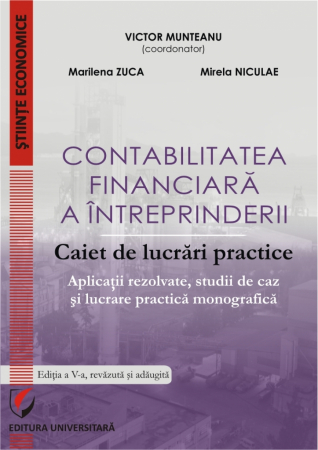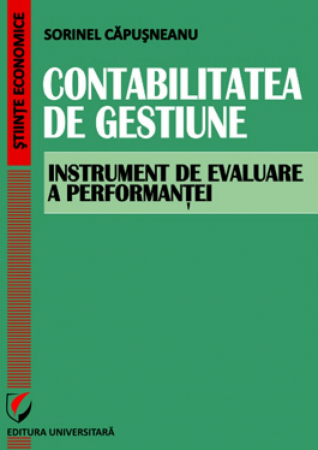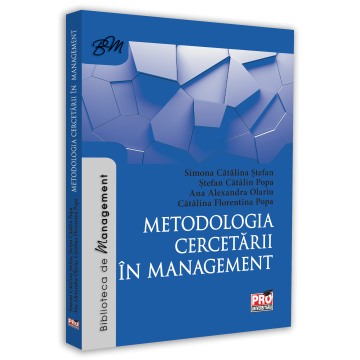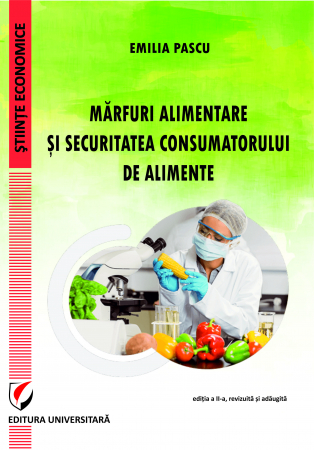Publisher: Editura Universitară
Author: Vadim Dumitrascu
ISBN: 978-606-28-1246-1
DOI: https://doi.org/10.5682/9786062812461
Publisher year: 2021
Edition: I
Pages: 146
- Description
- Download (1)
- Authors
- Content
- More details
- Reviews (0)
The central objective of ethics refers to the formulation of criteria on the basis of which it is possible to place certain human acts in one of the three categories mentioned above. In other words, ethics is primarily concerned with the ways in which we can distinguish what is moral from what is not, or more precisely, how we can differentiate between what is morally correct and what is incorrect. So, ethics tries to formulate answers to fundamental questions, such as "What actions are good in themselves?"
"What does a virtuous man look like?", "What moral debts do we have?" and so on The field of ethics is much more extensive than that of religion or legality, many of the moral rules not being enshrined in religious precepts or legal codes.
An ethical principle is a statement formulated in somewhat general terms that reveals a certain essential requirement for moral conduct. Moral values represent standards of good that we accept individually or collectively. While values show us what should be considered important or priority in different situations or contexts, the principles specify the requirements to be met by assuming a value. Therefore, the principle tells us how the value should be treated or approached. But both ethical principles and moral values are statements from which algorithms of conduct cannot always be deduced directly, that is, rules or norms that stipulate exactly what must be done or what must not be done to respect morality. In this sense, the moral norms or rules represent particularizations with clearly applied valences of the principles and values, showing how to proceed exactly in different situations that demand a moral positioning.
However, the explicit and more precise nature of the rules does not guarantee their automatic application and observance. To this end, it often takes attention and moral discernment to determine whether we are in a situation that requires the application of a rule. Also, in the face of complex problems or difficult situations, it is necessary to specify whether a certain rule is justified or not. Or, the intuitions we have about the morality of an option or act can be very misleading. That is why the justification for applying a rule is based, most of the time, on the reference to an ethical principle and / or a moral value that benefits from a significant adherence of the public.
-
Ethics and Academic Integrity. Challenges for 21st Century Organizations
Download
CHAPTER 1
ETHICS AND INTEGRITY - A CONCISED INTRODUCTION / 9
1.1. The field of ethics and integrity / 9
1.2. Principles, values, moral norms / 11
1.3. Autonomy and moral responsibility / 13
1.4. The importance of moral arguments / 14
1.5. The main moral areas / 15
1.6. Moral conflicts / 17
CHAPTER 2
ETHICS AND INTEGRITY IN ACADEMIC ORGANIZATIONS / 19
2.1. What does an ethical academic organization mean / 19
2.2. The moral virtues of academic organizations / 21
2.3. Moral values and rules in academic organizations / 23
2.4. The content of organizational ethics management / 25
2.5. Codes of ethics / 27
2.6. Ethics for a constructive organizational environment / 29
CHAPTER 3
INDIVIDUAL, ORGANIZATION AND SOCIETY: THE NEED FOR APPLIED ETHICS / 31
3.1. "Living morality" as a starting point / 31
3.2. Ethics seen as the intrinsic dimension of socio-human reality / 34
3.3. The objectives of academic organizations and their ethical dimension / 36
3.4. The social character of the organization 's activity / 39
3.5. Social responsibility of the organization / 41
3.6. Obligations of the organization towards stakeholders / 45
3.7. Organization as a social system: nihil sine ethica / 51
3.8. Is organizational ethics justified? / 55
CHAPTER 4
FROM ORGANIZATIONAL ETHICS TO MANAGEMENT ETHICS / 59
4.1. Corporate governance functions and Ethical responsibilities / 59
4.2. The foundations of managerial ethics / 63
4.3. Ethical implications of managerial activity / 69
4.4. Ethical managerial principles and practices / 72
4.5. Conditions for promoting an ethical and responsible management / 77
CHAPTER 5
THERE ARE NO ORGANIZATIONS WITHOUT ETHICAL OPTIONS / 83
5.1. In an organization, everything means ethics / 83
5.2. The profile of the modern organization / 86
5.3. New social and cultural requirements for organizations / 91
5.4. Organizational culture, ethics and responsibility / 95
5.5. The power of organizations and their ethical evolution / 102
CHAPTER 6
THE TRAPS OF THE REAL MANAGERIAL ETHOS / 111
6.1. Horror camera / 111
6.2. Prison as an ideal of organization / 113
6.3. Pavlov's dogs and the construction of organizational order / 115
6.4. Modern managerial ethics - between desideratum and reality / 118
6.5. Organizational rationality betrayed by itself / 121
CHAPTER 7
MORAL VALUES AND OTHER VALUES OF SOCIETY / 126
7.1. Values as the basis of a society 's culture / 126
7.2. Management models are the expression of company values / 129
7.3. "The software of the mind" / 133
7.4. Value systems / 136
GENERAL BIBLIOGRAPHY / 143
We often witness situations when ordinary people, often close people or acquaintances of ours (or maybe even ourselves), without necessarily being morally corrupt people, commit immoral acts. In such situations, the question naturally arises, "How is it possible that a person who is essentially on duty could not comply with a moral norm or requirement?" The answer to this question is often as simple as possible - those people did not know that their actions violate certain moral precepts. In such situations, the return of conduct to an ethical phase is done through appropriate information or education.
But much more frequent are those situations when the violation of moral requirements is determined by the lack of motivation to promote moral conduct. This is why people are sometimes prone to ethically questionable actions because they do not find enough resources in their inner forum to deal with certain temptations. This deficit of "character strength" is complemented by the inclination to rationalize (justify with rational arguments) such temptations and the resulting behaviors.
Organizations, including academics, are not fully protected from the opportunistic, risky, or downright immoral behavior of their members. The idea of ethics and academic integrity refers simultaneously to two closely related aspects, but distinct enough to consider them separately:
1) An area of scientific research characterized by a series of associated elements, such as specialized journals, scientific events, research projects, etc.
2) A movement within the academic world that aims to increase the level of awareness of ethical issues and the integration of ethical requirements in academic activity.
Whenever we classify people's conduct as moral or immoral, we do so with reference to actions, the intentions that determined those actions, or the consequences they produced. From a moral point of view, all our actions can be divided into the following types:
Actions that violate moral norms ("immoral actions") Actions that respect moral norms ("moral actions")
Morally indifferent actions ("morally neutral actions").
The central objective of ethics refers to the formulation of criteria on the basis of which it is possible to place certain human acts in one of the three categories mentioned above. In other words, ethics is primarily concerned with the ways in which we can distinguish what is moral from what is not, or more precisely, how we can differentiate between what is morally correct and what is incorrect. So, ethics tries to formulate answers to fundamental questions, such as "What actions are good in themselves?""What does a virtuous man look like?", "What moral debts do we have?" and so on The field of ethics is much more extensive than that of religion or legality, many of the moral rules not being enshrined in religious precepts or legal codes.
An ethical principle is a statement formulated in somewhat general terms that reveals a certain essential requirement for moral conduct. Moral values represent standards of good that we accept individually or collectively. While values show us what should be considered important or priority in different situations or contexts, the principles specify the requirements to be met by assuming a value. Therefore, the principle tells us how the value should be treated or approached. But both ethical principles and moral values are statements from which algorithms of conduct cannot always be deduced directly, that is, rules or norms that stipulate exactly what must be done or what must not be done to respect morality. In this sense, the moral norms or rules represent particularizations with clearly applied valences of the principles and values, showing how to proceed exactly in different situations that demand a moral positioning.
However, the explicit and more precise nature of the rules does not guarantee their automatic application and observance. To this end, it often takes attention and moral discernment to determine whether we are in a situation that requires the application of a rule. Also, in the face of complex problems or difficult situations, it is necessary to specify whether a certain rule is justified or not. Or, the intuitions we have about the morality of an option or act can be very misleading. That is why the justification for applying a rule is based, most of the time, on the reference to an ethical principle and / or a moral value that benefits from a significant adherence of the public.

6359.png)
![Ethics and Academic Integrity. Challenges for 21st Century Organizations [1] Ethics and Academic Integrity. Challenges for 21st Century Organizations [1]](https://gomagcdn.ro/domains/editurauniversitara.ro/files/product/large/dumitrascu-vadim_etica-si-integritate-academica_bt-3067-8328.jpg)
